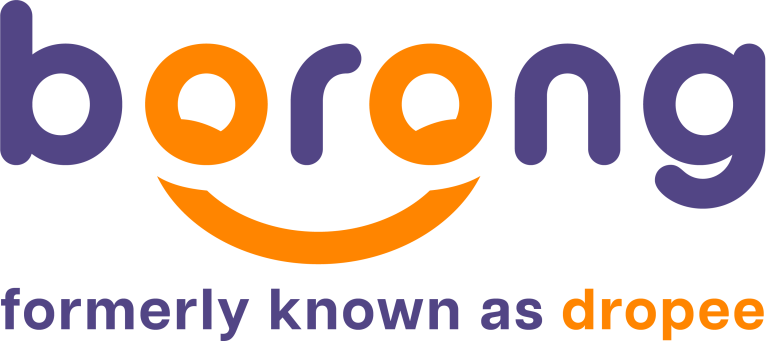A business plan is far more than just a formal document. It serves as a roadmap that helps entrepreneurs navigate their business journey, measure progress, and face challenges with well-prepared strategies.
For suppliers in Malaysia, a well-developed business plan can be the difference between a business that thrives and one that struggles to stay afloat.
With the right business plan in place, suppliers can define both short-term and long-term goals in a structured manner. It simplifies decision-making processes, supports growth monitoring, and plays a critical role in attracting investors or financial support.
This article explores how you can create an effective business plan and why it matters to your success as a supplier in Malaysia.
What Is a Business Plan?
A business plan is a detailed written document outlining how a business is intended to operate. It includes your business vision, mission, goals, marketing strategies, organisational structure, and financial projections. It’s a guiding tool that keeps business owners focused and organised.
A well-prepared business plan typically includes:
- Executive summary
- Company profile
- Market and competitor analysis
- Marketing and sales strategy
- Organisational and management structure
- Operational plan
- Financial forecasts
- Appendices (research data, supporting documents, etc.)
Each of these sections plays a vital role in demonstrating how your business will be run and how it is expected to grow.
Why a Business Plan Matters

For many small business owners and suppliers in Malaysia, a business strategy is often overlooked. However, it offers numerous strategic advantages, particularly during the early stages and expansion phase of your business. Here’s why it matters:
1. Acts as a Strategic Guide
Your business strategy works like a compass, helping you stay on course. With clear strategies laid out, you can confidently take the right steps at each phase of your business growth.
2. Supports Decision-Making
As a supplier, you’ll face multiple decisions—from choosing supply partners to pricing strategies. A clear business plan provides a logical, data-driven foundation to guide these choices.
3. Attracts Investors and Lenders
Whether you’re seeking capital from a bank or private investors, a professional business plan proves your seriousness. It reflects your preparedness and potential, making it easier to secure funding.
4. Identifies Opportunities and Risks
Through proper market and competitor analysis, your business strategy helps uncover new market opportunities while also identifying potential risks. This proactive approach gives you a competitive edge.
Types of Business Plans for Suppliers
Every business is unique, and so are its planning needs. Here are common types of business plans, each catering to different stages and goals:
Startup Business Plan
This type is designed for new businesses. It explains your business idea, revenue model, target market, and initial funding requirements.
Expansion Business Plan
If your business is already running and you’re looking to expand your market reach, add new products, or open additional branches, this plan will guide your growth strategies and risk assessments.
Operational Business Plan
Focused on daily activities and internal processes, this plan ensures your team stays aligned with company targets and procedures.
Strategic Business Plan
Looking ahead to the next 3 to 5 years, this type sets out your long-term vision and outlines the major policies and resource allocations to get there.
Also read: Borong: a B2B Solution for Suppliers and Retailers
How to Create an Effective Business Plan

Crafting an effective business plan doesn’t have to be complicated. What’s important is that it’s built systematically and based on accurate data. Here’s how to do it:
1. Define Your Vision and Mission
These are the foundation of your business strategy. Your vision sets out long-term goals, while your mission describes how you plan to achieve them.
2. Conduct Market Research and Competitor Analysis
Understanding industry trends, customer demands, and competitor strengths and weaknesses is essential. This insight shapes your marketing and sales approach.
3. Build Your Marketing and Operational Strategy
Your marketing strategy should define your target audience, communication channels, and promotional tactics. Meanwhile, your operational plan should cover production and distribution processes.
4. Establish Your Organisational Structure
Clearly outline roles, responsibilities, and reporting lines. Strong leadership and defined structures enhance efficiency and communication.
5. Develop Financial Projections and Budgets
This includes profit and loss forecasts, cash flow statements, and balance sheets. It helps determine your funding needs and shows how your business will remain financially sustainable.
6. Review and Update Regularly
A business strategy isn’t a one-time task. Markets evolve, and your business must adapt. Periodic evaluations ensure your plan remains relevant and competitive.
Common Business Strategy Mistakes to Avoid
Avoiding these frequent mistakes will increase your chances of success:
Inadequate Market Research
Without proper insights into the market, your strategy may miss the mark. This could lead to poor product reception and underwhelming sales.
Unrealistic Financial Projections
It’s common for business owners to be overly optimistic. Ensure your projections account for expenses and market risks. Being realistic builds trust with investors and helps you prepare better.
Weak Marketing Strategy
If your plan lacks a solid marketing approach, your business may struggle to reach customers. Your strategy should include pricing, promotion, and distribution tailored to your market.
Inflexibility
Rigid plans fail to respond to changes. Stay open to adjustments and prepare backup strategies to remain agile in a shifting business environment.
Also read: How to Choose the Best Online Marketplace in Malaysia
Business Planning for Malaysian Suppliers
For Malaysian suppliers, having a well-crafted business strategy is even more critical in today’s fast-paced market. With regional competition and evolving consumer needs, suppliers must be structured, adaptable, and forward-thinking.
A robust business strategy enables you to confidently present your business to local partners or international buyers, streamline your operations, and expand across new markets. Whether you’re selling locally in Johor or exploring export opportunities across ASEAN, your business strategy should be your starting point.
Make Your Business Plan Work with Borong
The good news is, you don’t have to manage everything manually. Borong offers a digital solution to help suppliers like you run your business more efficiently. With features for inventory management, sales tracking, and seamless distribution, Borong empowers you to align your operations with your business plan or business strategy.
Now is the perfect time to take your business plan from paper to practice. Join thousands of businesses already using Borong to manage their supply chain and operations all in one platform.
Explore how real-time analytics from Borong empower smarter decisions in line with your business goals.


